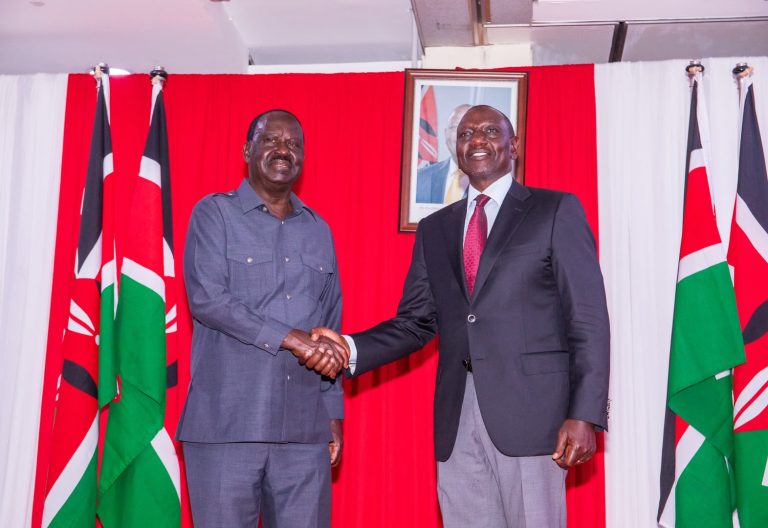Open letter to President Ruto and Raila after power deal

I write this letter as a concerned and frustrated citizen of Kenya, one among millions who are grappling with an economy in freefall and a security situation that is deteriorating by the day.
While your recent Memorandum of Understanding to work together may be seen as a positive step towards unity and national cohesion, it does not erase the reality that Kenya has been suffering long before this agreement.
The economic hardships we face today did not start after your political agreement; rather, they have been deeply rooted in years of mismanagement, and they have only worsened under the current regime.
For years, Kenyans have been crying out for relief from an economy that increasingly favors the elite while pushing ordinary citizens deeper into poverty.
The rising cost of living, skyrocketing taxation, and the erosion of purchasing power have left many Kenyans barely surviving. The situation has not been helped by policies that seem more focused on revenue collection than on stimulating economic growth.
The ordinary mwananchi is left shouldering an unbearable burden as food prices, fuel costs, and prices of essential commodities become unaffordable.
The government’s taxation policies have placed undue pressure on businesses, particularly small and medium enterprises (SMEs) that drive the economy. Rather than creating a conducive environment for businesses to thrive, the heavy taxation and bureaucratic bottlenecks have led to massive closures and job losses.
This has created a ripple effect, increasing unemployment and worsening the already dire economic situation.
Additionally, the depreciation of the Kenyan shilling against major foreign currencies has made imports more expensive, further exacerbating inflation. Instead of proactive measures to stabilize the economy, what we see are reactionary policies that fail to address the root causes of our economic decline.
The Burden of Public Debt and Corruption.
Kenya’s public debt has reached unsustainable levels, yet there is little to show for the massive borrowing that has taken place over the years. Infrastructure projects, which should be engines of growth, have instead become avenues for corruption and mismanagement.
The burden of repaying these loans falls squarely on taxpayers, who are already overburdened by high taxation.
Corruption remains one of the greatest obstacles to economic progress. Despite numerous promises to fight graft, Kenyans continue to witness large-scale embezzlement of public funds with little to no consequences for those responsible.
Resources meant for public services such as healthcare, education, and infrastructure development are misappropriated, leaving citizens frustrations.
The writer is An Economist and Accountant currently with Kenya School of TVET in Gigiri, Nairobi.














